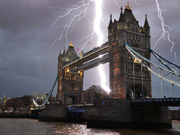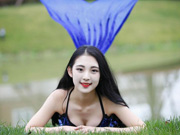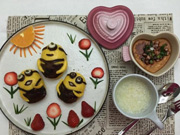

LONDON Apr. 7 (People's Daily Online)—— The National Gallery today opens an exhibition exploring the evolution of Dutch flower painting over the two centuries on 6 April to 29 August 2016.
Through 22 works, Dutch Flowers will examine the origins of the genre, the height of its popularity in the Dutch Golden Age and its final flowering in the late eighteenth century. Approximately half the works on display will come from the Gallery’s permanent collection, and the rest from private collections.
At the turn of the seventeenth century, Netherlandish painters such as Jan Brueghel the Elder, Ambrosius Bosschaert and Roelandt Savery were among the first artists to produce paintings that exclusively depicted flowers. The sudden emergence of this genre is undoubtedly linked to the development of scientific interest in botany and horticulture at the close of the sixteenth century. This period saw the establishment of botanical gardens in the Netherlands as well as a booming international trade in exotic cultivars. By the 1630s, speculative prices for the most coveted bulbs and flowering plants had reached spectacular heights - the so-called ‘Tulipmania’. Prices soon crashed, however the Dutch enchantment with flowers endured.
The earliest flower paintings feature flat, symmetrical arrangements comprising flowers from different seasons. Over the course of the seventeenth century, bouquets become more relaxed, with asymmetrical rhythms and a willingness to overlap even the most costly flowers to create a more natural sense of depth. By the end of the eighteenth century, flower paintings were considered largely decorative, with a lighter palette more in keeping with ‘modern’ tastes. Throughout the period, many artists favoured smooth copper or wood panel supports that enhanced the illusionistic perfection of their brushwork.
Gabriele Finaldi, Director of the National Gallery said, "The exhibition is an opportunity to admire the exquisite skill of Dutch flower painters over a period of nearly 200 years in works from the National Gallery and from private collections. They are paintings of astounding quality and beauty, often rich in symbolism and historic interest."
 |
Day|Week

 Kenyan woman's crappy photoshopped pictures make her a web celebrity
Kenyan woman's crappy photoshopped pictures make her a web celebrity Magnificent view of E. China's Anhui province
Magnificent view of E. China's Anhui province Global landmarks captured in striking shots
Global landmarks captured in striking shots Thailand Elephants Disguised as Pandas Sparks Debates
Thailand Elephants Disguised as Pandas Sparks Debates College girl dresses as mermaid to mark World Water Day
College girl dresses as mermaid to mark World Water Day J-15 fighters in drill on Chinese aircraft carrier
J-15 fighters in drill on Chinese aircraft carrier 96-Year-Old Veteran Becomes Fashion Icon
96-Year-Old Veteran Becomes Fashion Icon Creative mother produces 232 unique breakfasts
Creative mother produces 232 unique breakfasts Charming folk customs in Kalajun Grassland
Charming folk customs in Kalajun Grassland A glimpse of ships and boats commissioned to PLA Navy in past 3 years
A glimpse of ships and boats commissioned to PLA Navy in past 3 years